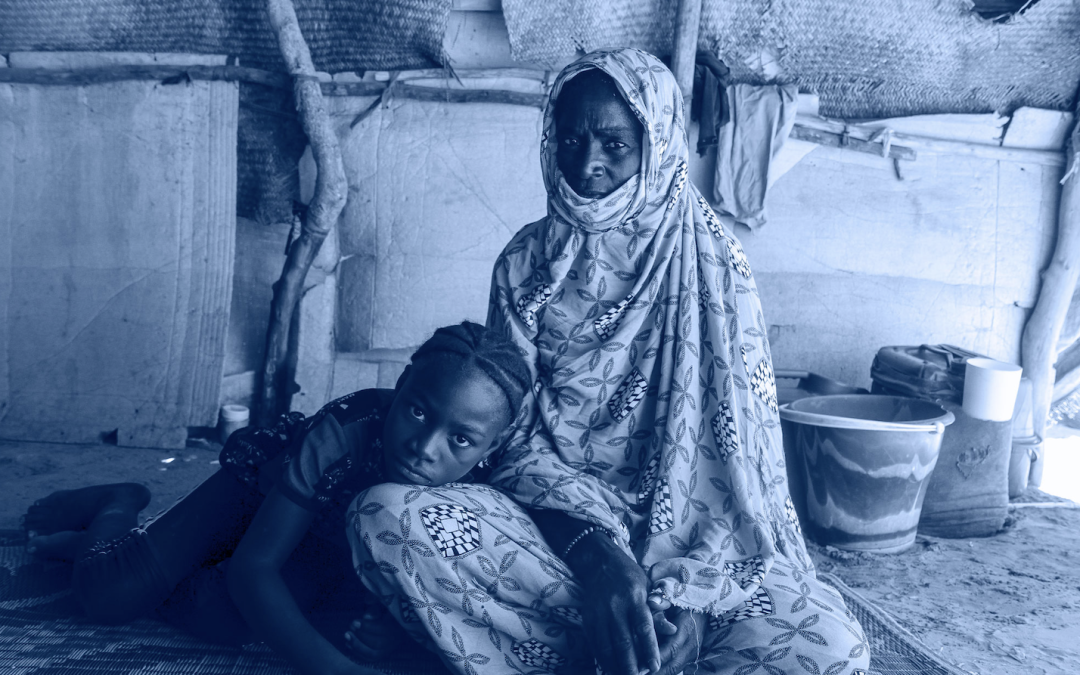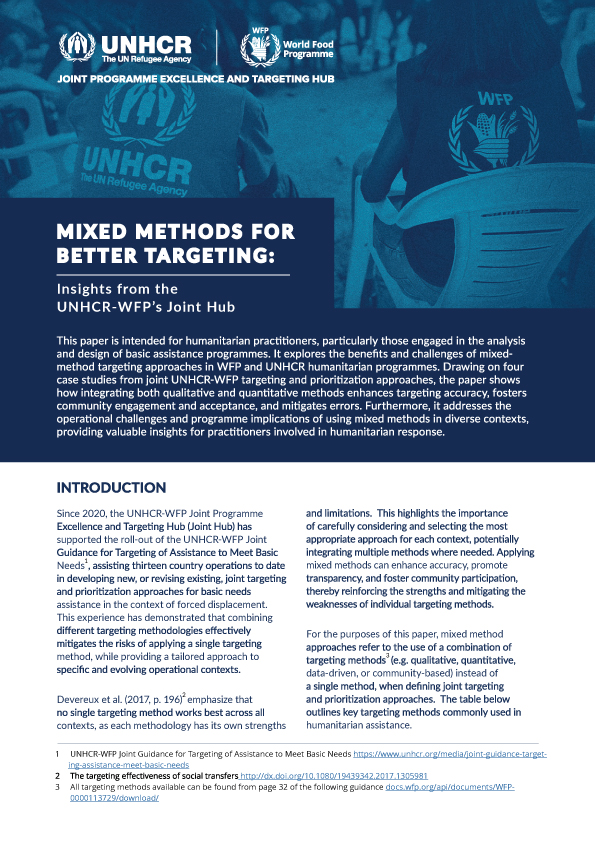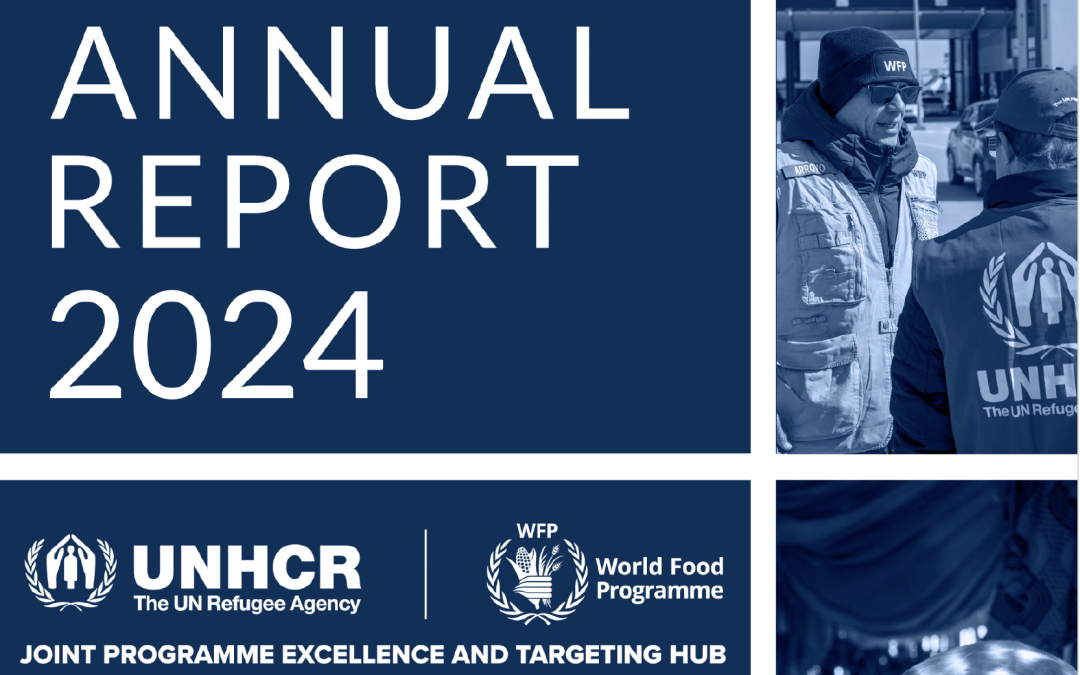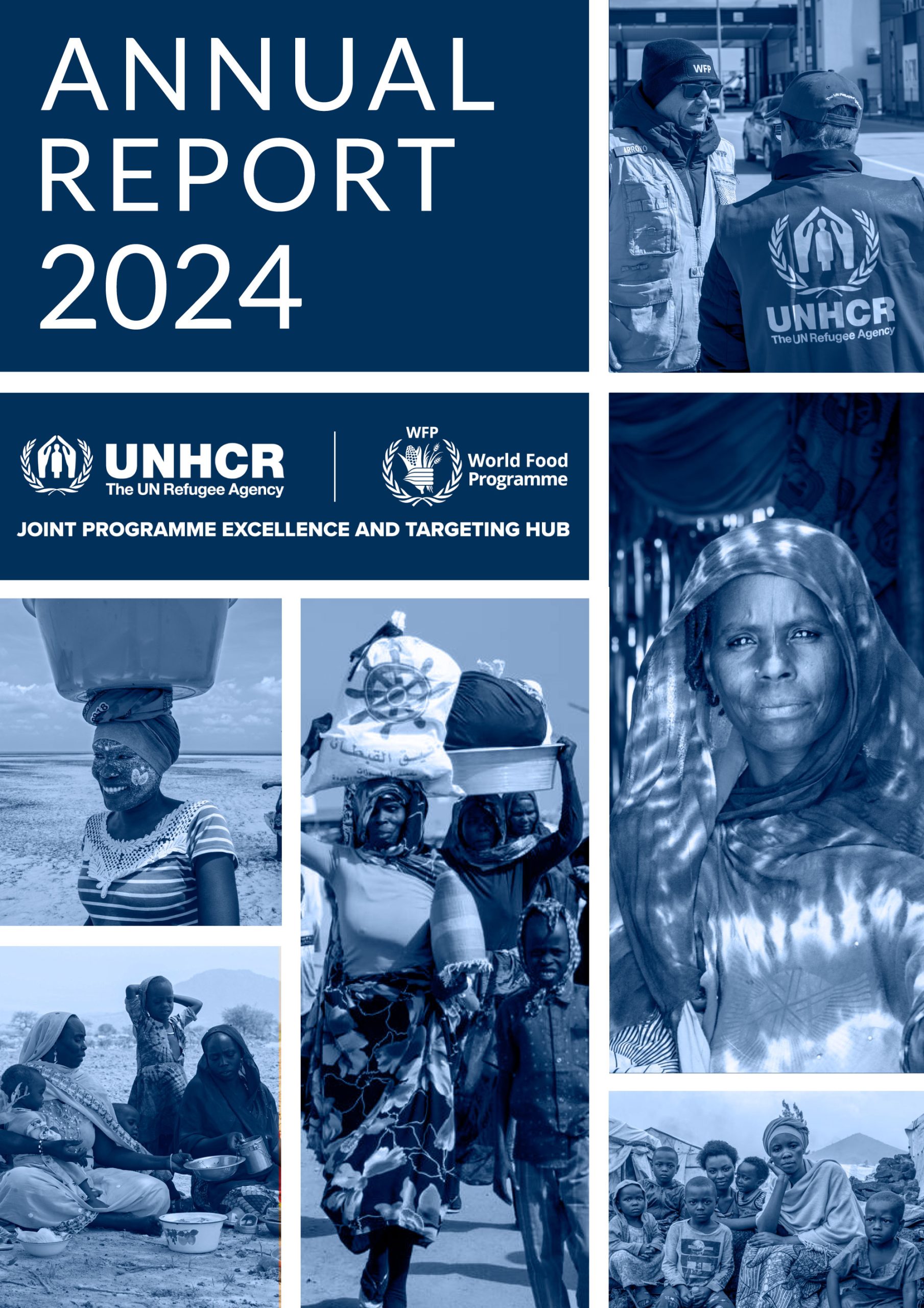
Joint Hub Niger Learning Review 2025
The Joint Hub’s Learning Review from Niger (2021-2024) outlines lessons learned, best practices and challenges of WFP and UNHCR’s collaboration for the targeting and prioritization of food assistance for refugees, IDPs and host populations in Niger. The findings presented stem from an online learning review led by the Joint Hub during which interviews were held with staff from WFP, UNHCR and the Joint Hub itself. The lessons learned aim to contribute to the quality of support provided to country operations and inspire similar collaborative efforts in other contexts.
NIGER LEARNING REVIEW 2025







